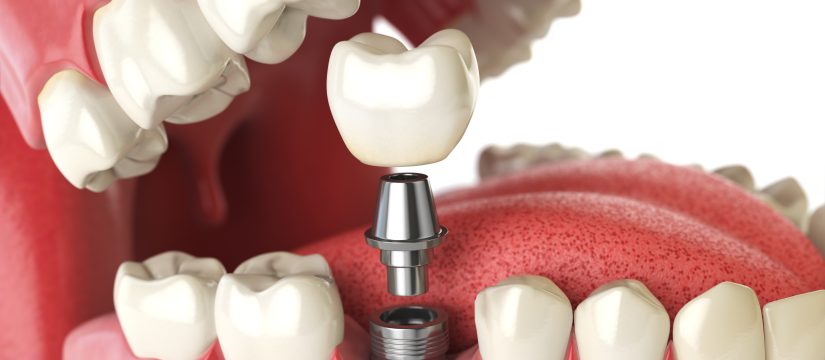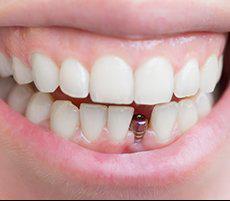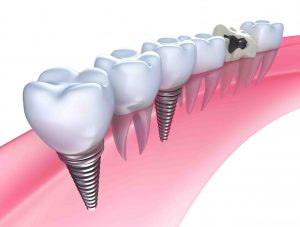
How do you know if implants are right for you?
Dental implants have become a popular alternative to getting a partial dental appliance or full dentures. In the past, if you needed dentures—either full or partial—there were difficulties with keeping them placed correctly in your mouth.
Products such as Fast Teeth, Dentugrip and Polygrip were developed to prevent dental appliances from sliding around in the mouth and making it easier for people to eat and talk. Most of these products were gel or powder based. The problem with them is that hot beverages and food would sometimes cause them to melt and dissolve in the mouth thus destabilizing the denture so that it was able to move around the mouth. This then caused problems like disrupting eating and speaking.
In general, you would be a good candidate for dental implant surgery if you:

- have one or more teeth missing.
- have adequate bone density to secure the implants—or are able to have a bone graft to ensure the stability of the implant.
- have healthy oral tissue.
- either don’t want to or are unable to wear dentures.
Dental implant surgery is a procedure that replaces teeth by implanting metal (usually titanium) screw-like posts into the jaw that act as tooth roots. Artificial teeth are then attached to the implants so that they look and function as real teeth. Dental implants are an excellent option when a lack of natural tooth roots makes wearing a denture or bridgework not possible.
Dental implant surgery risks are relatively low, usually minor and can be easily treated.
What Are The Risks With Dental Implant Surgery
These risks include:
- Infection at the implant site.
- damage to blood vessels or other teeth near the implant site.
- Nerve damage, which can cause tingling, numbness or pain in your mouth.
The benefits of dental implants far outweigh the risks and include:

- Improved appearance. Because implants and the artificial teeth that are attached to them look just like normal teeth, this is a great option as opposed to a basic denture.
- Improved speech. Poor-fitting dentures can slip in your mouth causing you to slur your speech and/or mumble. Because dental implants provide a secure way to keep artificial teeth from slipping, this is no longer a concern.
- Easier eating. If you’ve ever tried to eat corn-on-the-cob wearing a denture, you’ll understand why dental implants are a welcome alternative. Implants make eating all your favorite foods much easier without having to worry about your partial or full denture slipping and possible bruising or cutting your gums.
- 4. Convenie Dental implants eliminate the inconvenience of having to remove dentures for a variety of reason.
- Durability. Implants usually last for years.
If you’re tired of dentures moving around in your mouth while eating or speaking or you simply want an easier way to be able to eat your favorite foods without having to worry about how to chew them, dental implants may be a good bet for you.

